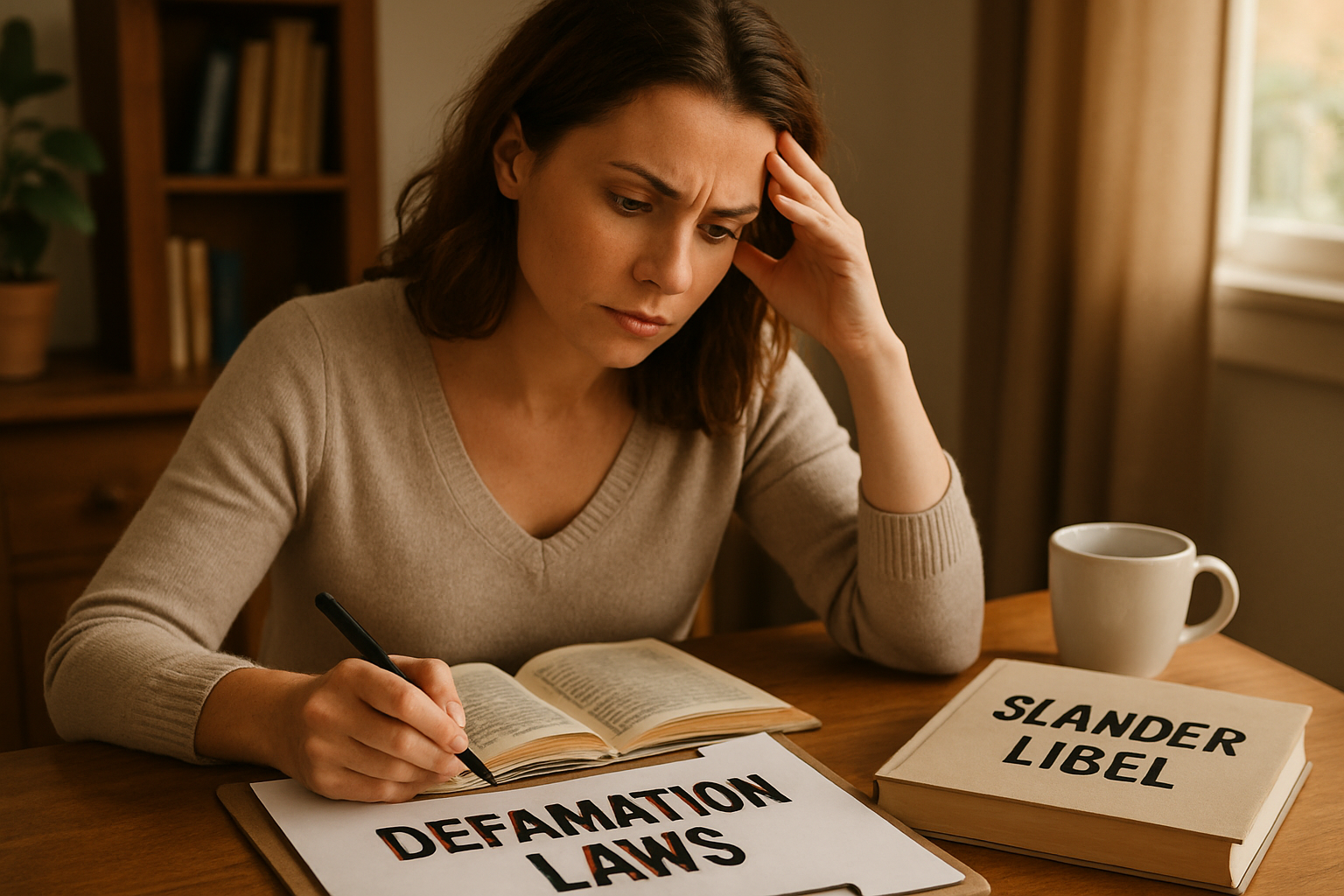Defamation Laws: Understanding Slander and Libel

Life as an expat in Turkiye opens doors to new experiences, professional opportunities, and cultural adventures. At the same time, adapting to a different legal and social landscape brings unique challenges. One area that often causes confusion is defamation law, particularly when conversations or content cross international and online boundaries. Understanding slander and libel is crucial for anyone living and working abroad, especially in a digitally connected world where reputations can be swiftly damaged.
Defining Defamation: Slander vs. Libel
Defamation involves making a false statement about someone that harms their reputation. However, the how and where of those statements makes a difference:
- Slander: Spoken, temporary forms of defamation. This includes things said in person or over the phone.
- Libel: Written or published forms of defamation. Examples include printed articles, emails, and social media posts.
In today’s online world, the lines sometimes blur. A voice note might be treated differently from a Facebook post. For expats, being aware of these distinctions can prevent misunderstandings and potential legal trouble.
Defamation Laws in Turkiye: What Expats Need to Know
Turkiye’s legal system takes a strong stance against defamation. Local laws cover both slander and libel, both offline and online. This is particularly important for expats, as actions or comments that might be acceptable or ignored in your home country could carry consequences here.
- Defamation is both a civil and a criminal matter under Turkish law.
- Truth does not always provide a complete defense when the statement violates personal rights.
- Public figures, like politicians or celebrities, have some additional protections but are also open to greater scrutiny.
For instance, a heated workplace disagreement could lead to a civil case if insults turn into reputational harm. Likewise, posting a negative review online without clear, factual backing might result in a lawsuit.
Recognising Risky Situations as an Expat
Everyday conversations or online activities can quickly lead to unintentional defamation. Even well-meaning comments can spiral into misunderstandings. As an expat, you might face additional scrutiny due to language barriers or cultural misinterpretations.
- Sharing negative experiences about a local service on your expat blog without evidence
- Joking about a Turkish colleague’s professional reputation within a social group
- Reposting unverified news or rumors on social media platforms
- Making casual remarks about local traditions or leaders in public places
Staying alert to context and tone, especially online, keeps your personal and professional life safer. When in doubt, avoid making sweeping or personal comments about individuals or organizations.
Practical Examples: Slander and Libel in Everyday Expat Life
Real-life situations help bring these concepts to life. Consider these scenarios:
- Slander Example: At a dinner party, an expat accuses another guest—based only on a rumor—of stealing from a mutual friend. The accused party’s reputation suffers within the local community group.
- Libel Example: An expat writes a negative hotel review online, claiming the staff are dishonest, without proof. The hotel experiences a wave of cancellations and investigates the source.
These cases underline how everyday moments can have legal consequences. In Turkiye, both the individual and any entities (such as employers or clubs) may face damage due to such incidents. By considering the impact before speaking or posting, expats can maintain stronger relationships and avoid stressful disputes.
Tips for Safe Communication and Reputation Management
Protecting your reputation and avoiding defamation issues is possible with mindful communication:
- Stick to facts, not opinions, especially when discussing people or businesses.
- Avoid sharing unverified rumors or third-party information.
- Seek consent before posting anything about others, even on private platforms.
- Understand local customs on privacy and public criticism—cultural differences matter.
- Keep all records of communication in professional matters, as documentation can help if disputes arise.
The digital world connects expats to broader communities, but it also means written words linger forever. Responsible communication builds trust, protects everyone’s reputation, and helps you thrive in your new home.
